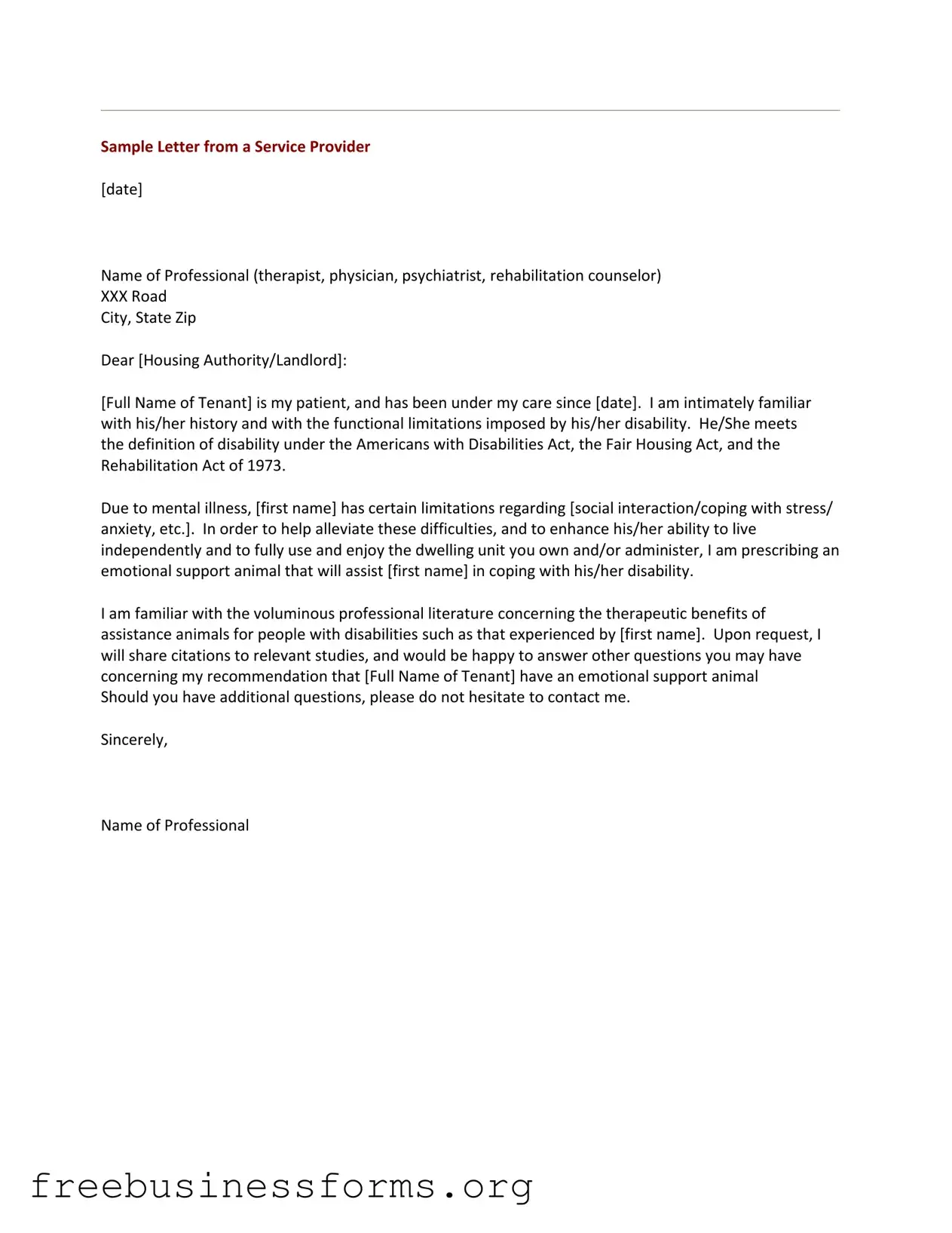Official Emotional Support Animal Letter Form in PDF
The Emotional Support Animal (ESA) Letter is a document that certifies an individual’s need for an emotional support animal as part of their mental health treatment. This letter, typically issued by a licensed mental health professional, allows individuals to enjoy certain housing and travel accommodations that support their well-being. Understanding the significance of this letter can empower individuals seeking comfort and companionship from their animals.
Open Form Here

Official Emotional Support Animal Letter Form in PDF
Open Form Here

Open Form Here
or
↓ PDF File
Quickly complete this form online
Complete your Emotional Support Animal Letter online quickly — edit, save, download.
